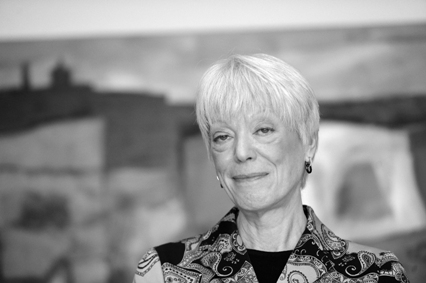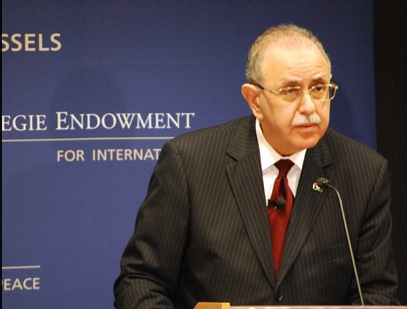By Umar Khan.
Tripoli March 11. June 23 will be the last date for elections in post-Qaddafi Libya according to many NTC members . . .[restrict]who are doing their best to meet all the deadlines. As the elections draw near, the political temperature is rising not only in the capital but in all Libya.
Tripoli has seen a rush of events during which almost everybody has announced the formation of either political parties or coalitions. Most of the names who were the faces of the February 17 Revolution at the very beginning and were instrumental in getting international recognition have either formed their own political parties or have joined one. These include Mahmoud Jibril, Ali Tarhouni, Abdul Hakim Belhaj, Abdullah Naker and Ameen Belhaj.
Democracy is new to Libya and it will naturally take some time for ordinary men and women to get used to it but it will take marginally less time if they are helped by people who are experienced. The National Democratic Institute – NDI – is doing exactly that. It is a non-profit organisation working in every region of the country supporting democratic institutions and spreading awareness of the electoral process.
They have had meetings with the different parties and have visited the remote regions of Libya, educating people about the voting process and the importance of their vote. They are helping the parties to implement democratic culture within the party in the right spirit.
As part of the awareness program, NDI hosted a conference in Tripoli at which more than 70 representatives of 20 different political parties from all over Libya took part. Three members of the Electoral High Committee also attended the conference in a bid not only to discuss concerns from both sides but also to suggest new ideas which would aid in conducting the first elections of Free Libya.
The conference was viewed positively by all parties and they were happy to be given such an opportunity when they were able to highlight their concerns and, at the same time, learn more about the democratic process.
Some people were not as satisfied as others, saying they had been expecting some concrete steps and new ideas. This failure might be because of the little common ground they shared with the other parties which included liberals, socialists, conservatives and some moderate religious ones as well.
Elections for congress are the single most important thing as they will decide the future of the Libyan state and the elections therefore interest all Libyans very much. Success in the upcoming elections is very closely related to how well organised the parties are and how aware ordinary people are about them.
The Muslim Brotherhood (MB) is well aware of the importance of the organisation and this was illustrated when the MB successfully organised its first membership drive in decades. The drive took place in a large convention center in Tripoli and it was attended by more than 1350 newly registered members.
Ameen Belhadj, a senior MB leader, likened the anticipation to the arrival of the bride after all the preparations had been made and the stage was ready. He was very excited by the turnout and said that it had exceeded expectations and that hundreds of people had registered on the day of the event itself.
The factor that made it different from the usual MB event was the diverse group of people attending. The usual MB stereotype of beards and suits was sidelined as many of those attending were young people in very casual dress. The surprising element was the inclusion of certain people who were considered to be more liberal than conservative.
A specialist doctor from Benghazi who was just joining the party said that he was inclined to join the MB as it had no hidden agenda. He was very confident about the future of the MB in Libya and said that he only joined it for the sake of Libya as these people are honest with the people and the country.
Abdul Aziz, a young British Libyan who was brought up in a dissident family away from his homeland for two decades, was also overjoyed by the phenomenal response to the event. “I am sure the future of Libya is bright. Just look at the way people participated in the conference and all the new ideas and enthusiasm.
They are up to the difficult task of building the country from scratch. They’re serious.”
Ameen Belhadj gave the opening speech and thanked the martyrs and the injured revolutionaries for their sacrifices and said, “He [Qaddafi] said he who makes a party is a traitor. Today we are able to gather here to discuss the future of Libya because of the countless sacrifices our revolutionaries made…” He was making a reference to one of the slogans in the infamous Green Book of Qaddafi and the reference produced a roar of “Allahu Akbar” from the crowd.
The main aim of the conference was to decide the name of the party and also to name its leader. It was not, however, as easy as the organisers had planned and they faced some trouble reaching a consensus on both the name of the party and its leader and consequently, the press conference was delayed for several hours.
The standoff finally ended when “Justice and Construction Party” was agreed as the party name and Muhammad Hassan Sawan as the leader with a 20-member Shoura (advisory) council. Another 25 members were elected to the council from different parts of Libya and from abroad.
Sawan said that he was determined to take the party forward and completely supported national reconciliation. He also emphasised the participation of women in the future of Libya saying that the party did not support a quota system and that it did not want to restrict women’s participation.
If the figures provided by the party are correct, women’s participation was 9.1 percent at the first conference with 13 percent of the total members young men.
These figures will surely be of interest in liberal circles. [/restrict]









